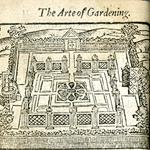AUTHOR ESSAY: Rediscovering an Amazing Life
In her acclaimed new book, Black Livingstone: A True Tale of Adventure in the Nineteenth–Century Congo (Viking, 2002), Pagan Kennedy ’84 resurrects the story of a forgotten African American explorer.
I met William Henry Sheppard in a book. Though he’d been dead 70 years and now consisted of nothing but a few pages of text in a wellthumbed paperback, he swept into my life with all the urgency of a new lover. The book in question was Ota Benga: The Pygmy in the Zoo by Harvey Blume and Phillips Verner Bradford. Sheppard was only a minor character in the nonfiction epic, and truthfully, the authors could have left him out if they had wanted to—he was tangential to their story.
But what author could pass up a character like William Sheppard? At the turn of the century, he had traveled deep into the Congo jungle in search of the hidden kingdom. Once he found his way into the capital city—the first Westerner ever to do so —he was hailed as a reincarnated prince by its people.
I kept thinking he should have his own book, and I assumed someone else would write it someday. Eventually, I discovered that Sheppard did have his own book—an autobiography, of sorts. The copy of it that I managed to track down was a slim volume, rebound some years back to protect its decaying spine, little more than a tract, called Presbyterian Pioneers in Congo, put out by the church in 1917.
Here he was, the real Sheppard—in his own words. The book had been adapted from lectures he gave when he toured America in the 1890s and again in the 1910s—when he billed himself as “Black Livingstone,” after the famous white English missionary. In the book, he tiptoes around race issues, and who can blame him? In the first year he went on the speaking circuit, more than a hundred blacks were recorded as lynched. Sheppard’s account of his childhood in America is, above all, polite. But when he describes Africa, his prose changes; he suddenly shifts into gear, becoming a fabulist and picaresque hero. He tells how eating eggs helped to navigate the secret trails of Africa. He displays the African executioner’s knife that was nearly used on his own neck. He seduces his audience with exotica: “We saw a rainmaker… dressed up in leopard skins and his hair filled with hawk feathers, and in his hand were a buffalo tail and a sprig of a tree.”
Indeed, Sheppard was a black Livingstone, a man caught between the 19th century and the 20th, between white colonialism and black pride. Like the English Livingstone, he brought home an Africa scented with the perfume of palm wine— an exotic Beyond the Looking Glass, a mirror–image land. But unlike Livingstone, he often treated Congo culture as the equal of his own.
I wondered who this marvelous man had been in private, and what made him die of paralysis and apparent heartbreak at the age of 61. Such mysteries drove me to special–order books from obscure libraries. I had to solve this puzzle. I had to understand him. For—and I couldn’t say why—as I read Sheppard’s writings, I began to believe that he held a key to my own history.
Perhaps he could answer the riddle that had dogged me ever since I was a girl: when you stripped off the hoop skirts and crinolines of my family’s illusions, who were we? Like Sheppard’s people, mine had been Presbyterians from Virginia. Mine had been senators, lawyers, doctors, poets, officers of the Confederate government—and slave owners. In our family’s history and letters, black people survived only as shadows. I was drawn to Sheppard partly because his voice sounded so much like the voices I’d been raised around, particularly my grandmother’s. It was not just that he and she shared a certain antique Virginia accent; they both used the same trick of ladling humor over the painful truth, the way you’d pour gravy over rock–hard biscuits to soften them up.
From my grandmother, I learned that her first cousin Robert Dabney Bedinger, author of Presbyterian Triumphs in the Congo, had gone to the Congo one year after Sheppard left. He’d lived in the station founded by Sheppard, worked with many of the same colleagues, ministered to Sheppard’s beloved Kuba tribe. As he traveled through the Kasai region of the Congo, Bedinger gathered stories about the history of Presbyterians there, and of Sheppard. Victorian in sentiment, the texts are little better than Sundayschool tracts. Still, Bedinger may have been the first person to write a formal biography of Sheppard. And the Sheppard story was so important to him that he quoted from it at length in his own autobiography—as if the mystery of himself hinged on the black missionary who had gone before him.
Why were my ancestor and I both drawn to Sheppard’s story? I can only speak for myself. I am fascinated—as I think most people will be, regardless of their background—with the way this man managed to ignore what others thought of him and mold his own identity.
Sheppard never fought American racism head on. Instead, he challenged it the way a cross–dresser challenges gender. In drag as a colonial Brit—pith helmet, linens, and puttees—he roamed the outback with a rifle across his shoulder. During a time when American blacks were being lynched by the thousands, were robbed of their rights to travel, Sheppard dared to be himself. It was the boldest and the bravest of his adventures.
For a longer version of this essay, see www.wesleyan.edu/magazine/wesmag_ books.html.

